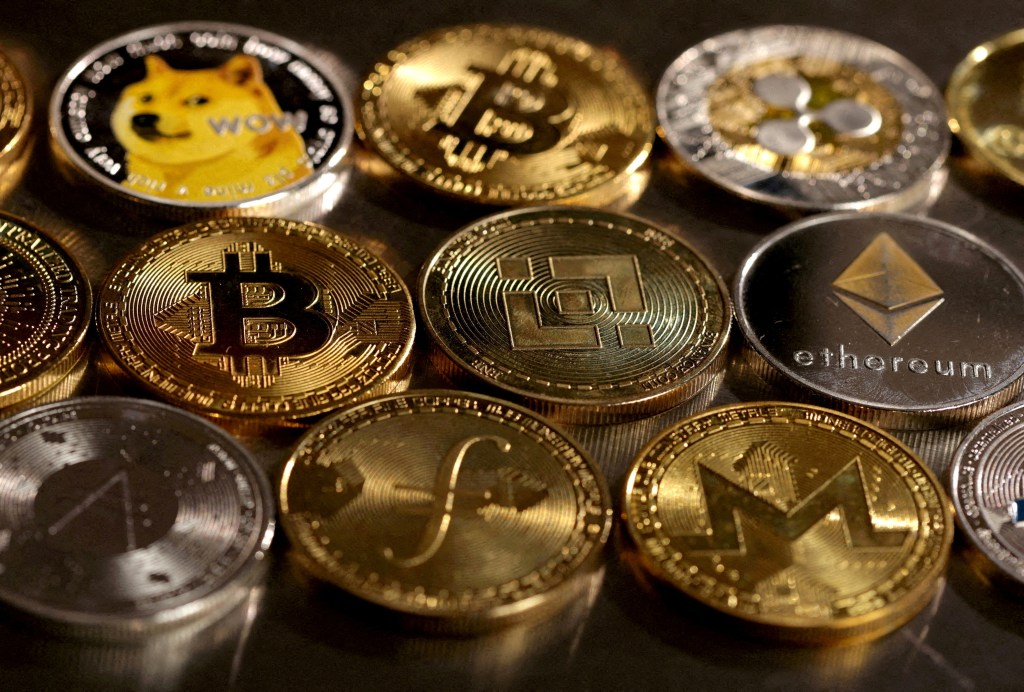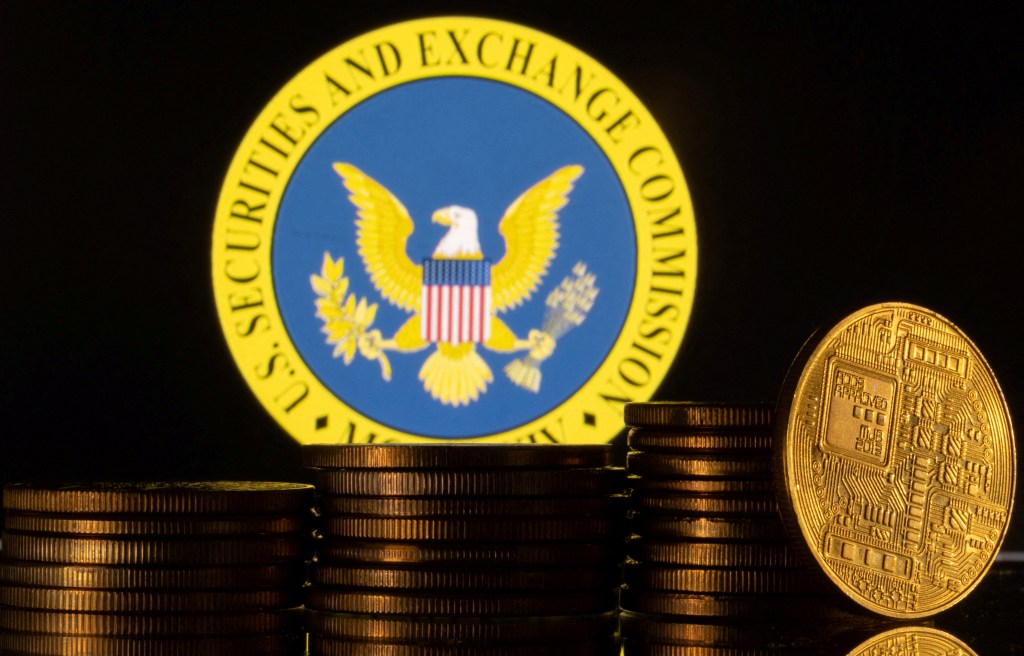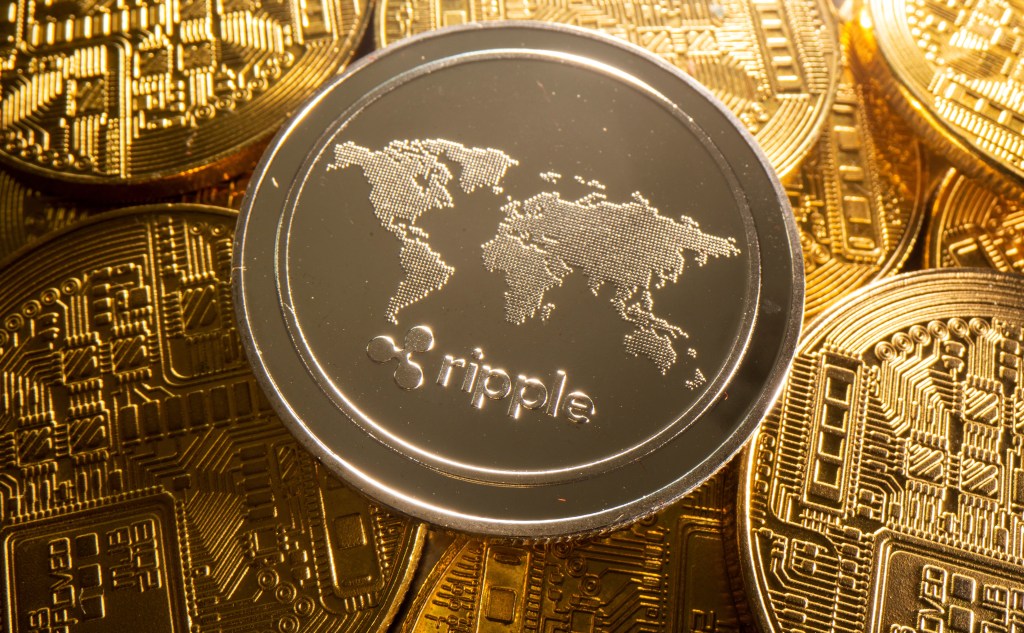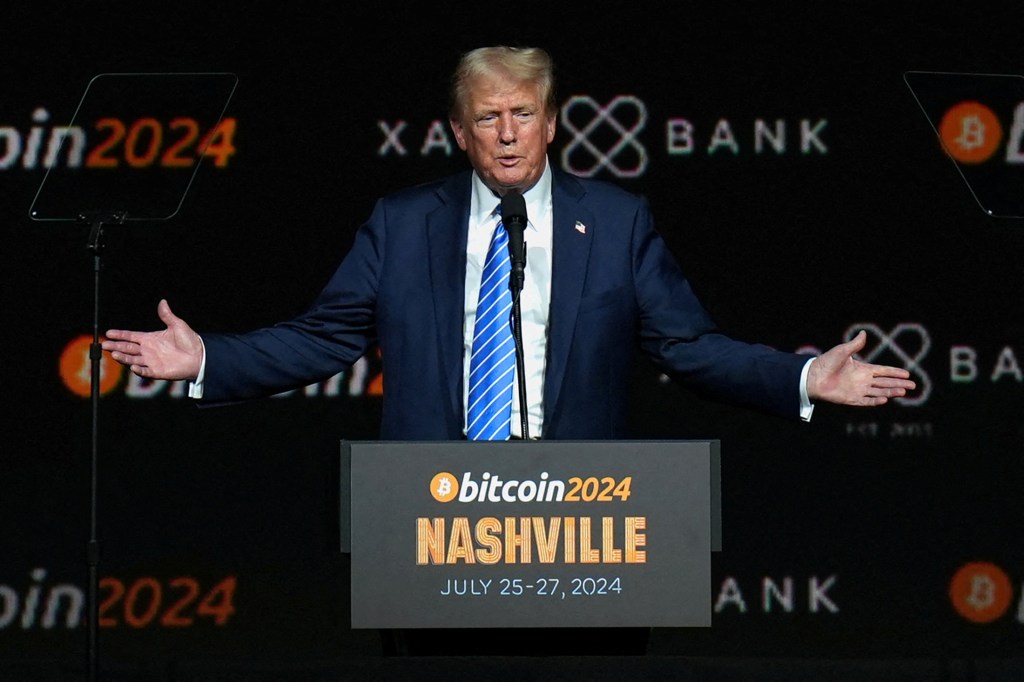A bumpy stock market and rising geopolitical tensions have lately pushed investors toward safe haven investments like gold or government bonds – but what about cryptocurrency?
Bitcoin, the pioneering digital currency, is coming off a record-breaking year, surpassing $100,000 for the first time in its 16-year history last December.
It has seen a wild ride since, briefly tumbling as low as $75,000 earlier this month over anxieties about a trade war. The price has recently bounced back, topping $90,000. But its notorious volatility doesn’t mean it can’t be part of a mainstream investing strategy, proponents say.

“In some ways, it’s riskier not to hold any crypto, just how a financial advisor would be like, ‘You should have some stocks. You should have some bonds. You should have some real estate,’” Ben Weiss, co-founder and chief executive of CoinFlip, a crypto ATM provider, told The Post.
“I think crypto’s gotten to the point where it’s a key part of any portfolio,” he continued.
Still, delving into the world of cryptocurrency can be daunting. There are seemingly endless options out there – Bitcoin, Ethereum, XRP – and lots of jargon, from blockchains to smart contracts.
If you’re ready to make your first foray into cryptocurrency, here are the basics you’ll need to know.
What is cryptocurrency?
The first step, as most crypto experts will tell you, is to educate yourself – start with the basics and work to grasp what makes cryptocurrency unique.
As its name would suggest, cryptocurrency is a form of digital money. But unlike the U.S. dollar, cryptocurrency can record and transfer value without relying on banks or the government for its value.
“It’s fully online. It’s made for the internet,” Weiss told The Post. “It’s borderless and secured by code instead of a centralized third-party.”
That borderless nature makes cryptocurrency more accessible, in some respects, than regular currencies.
Anyone with a connection to the internet can partake, and it can be transferred easily from a user in one country to another.

Take wire transfers at a bank, for example. If you want to send $100 to someone in another country, it takes time and approval from the bank. But you can send $100 worth of crypto to anyone worldwide with the click of a button.
US stablecoins “helped a lot of people in South America, especially Argentina, with inflation and a lack of trust with their government and banks,” Charles St. Louis, chief executive of DELV, which builds crypto infrastructure, told The Post.
Stablecoins are forms of cryptocurrency that are typically pegged to a traditional commodity or currency, like the US dollar.
“The Argentine peso was almost 60% inflated, and they couldn’t trust their government or banks to hold their money, so they stored US dollars under their pillowcases and mattresses,” St. Louis told The Post. “What the US stablecoin really allowed for them was to be in control of their own money and be able to spend it freely, and it really became popular there.”
Here are some popular cryptocurrencies:
- Bitcoin
- Ethereum
- XRP
- Solana
- Cardano

How does it differ from digital cash?
The concept of digital cash might ring some bells. Think of PayPal, Venmo or even credit cards.
But unlike these other forms of digital currency, cryptocurrency is not pegged to anything “tangible,” like gold, silver or a fiat currency.
Some legacy investors – like Warren Buffett, the 94-year-old “Oracle of Omaha” – have sworn to never invest in crypto, partly for this reason.
“In terms of cryptocurrencies, generally, I can say with almost certainty that they will come to a bad ending,” Buffett said during a 2018 interview. He once likened the digital currency to “rat poison,” and has vowed his firm, Berkshire Hathaway, will never have a position in it.
But crypto loyalists will argue that, in the end, more traditional investments and currencies aren’t pegged to anything that’s actually more tangible.
“There’s only 21 million Bitcoin that will ever be in circulation,” Weiss told The Post. “It’s one of the hardest assets out there.”

“I would argue the dollar isn’t tied to anything, except the full faith and credit of the US government,” he added. “Gold is a rock. Yeah, people use it in jewelry, but it’s not where it gets its value from, so Bitcoin is most akin to a digital gold.”
The name of the game when investing into crypto is to hold on and let it accrue value as a hedge against inflation and bad government – not spend it on a coffee at Starbucks, experts advise.
“It’s about accumulation in America. They’re more looking at, how do I get Bitcoin? Instead of, how do I spend Bitcoin?” Chris Kline, co-founder and COO of BitcoinIRA, a crypto retirement platform, told The Post.
“Where we might be in the next five to 10 years is, how do I use the Bitcoin that I have in order to pay my bills and do other things?”
Are You Crypto Curious?
How to start crypto trading today

Download a trusted exchange app — Start by choosing a licensed crypto exchange. We recommend starting with the Best Wallet app, available for both iOS and Android.
Create and verify your account — Sign up using your email, Google, or Apple ID. To complete registration, you’ll need to verify your identity with a government-issued ID and enable two-factor authentication (2FA) for added security.
Fund your account — Deposit money into your account by linking a bank account or credit card or even using gift cards. Choose an option that best fits your lifestyle.
Buy your first cryptocurrency — Use the app’s marketplace or swap tool to purchase crypto by entering the ticker symbol — like BTC for Bitcoin or ETH for Ethereum — and follow the prompts to complete the transaction.
Choose how to store your crypto — Decide whether you’ll keep your crypto in the exchange, move it to a digital wallet (hot wallet), or store it offline (cold wallet) for extra protection.
What is a blockchain?
A blockchain is the foundational layer upon which cryptocurrencies sit. It’s a digital, tamper-proof ledger that can record, verify and transfer data.
Along with being highly secure, it’s a public record that tracks every crypto transaction to take place, though it leaves the investors involved in each exchange anonymous.

While most known for their use in crypto investing, companies around the world use blockchains to their advantage in a number of ways – including “supply chain, property records…food traceability, authentication…logistics, identity and data transfer,” Weiss told The Post.
Walmart, for example, has a Blockchain partnership with industry leaders like Dole, Kroger, Nestle and Tyson Foods. It uses the technology to trace more than 25 products from as many as five different suppliers.
Blockchains are growing more popular among food giants, who can use the tech to closely track outbreaks of salmonella and other bacteria.
The De Beers Group used blockchain tech to track 100 valuable diamonds along its complex supply chain from mine to store, while global shipping giant Maersk has used the digital ledger to track cargo ships and containers.
What is a digital wallet?
A digital wallet is where you store your cryptocurrency once you’ve started to invest.
The two main types are hot wallets and cold wallets, which have different levels of security.

Hot wallets remain connected to the internet at all times, so it’s quicker and easier to make transactions, but they’re more vulnerable to cyber attacks.
Cold wallets are kept offline, so there’s stronger security. However, if you take this route, you must be sure to never lose your wallet address – a unique string of letters and numbers that allows you to access your investments. If you write it on a slip of paper that goes missing, that’s it – you’ll have no way to access your cryptocurrency.
Here are some popular digital wallets:
What is a smart contract?
Smart contracts, which are most often associated with Ethereum, a form of cryptocurrency, are programming language that act as self-executing contracts on a blockchain.
When certain conditions are met, the contract is executed upon. Take, for instance, a betting contract that awards you crypto automatically after winning a bet, Weiss said.







